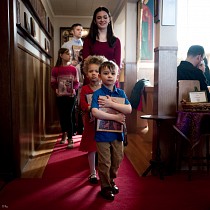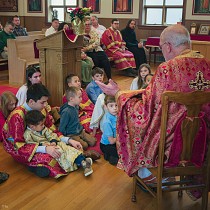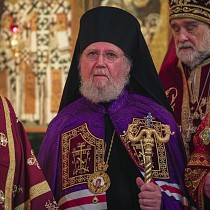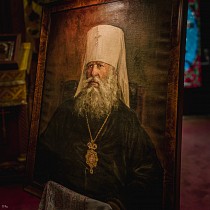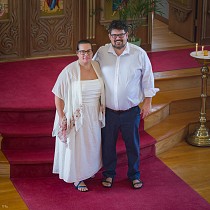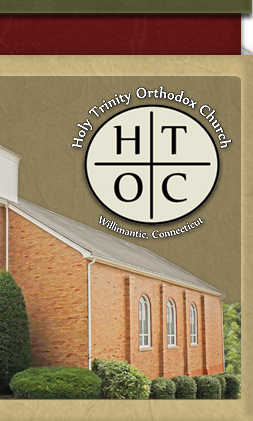Church time moves slowly. Some would offer, too slow.
A century in real time can often cover up to five generations, but 100 years of time in the church is measured differently. It can often take at least that amount of time for a significant and tangible change to take place.
Because church time does not move in the manner of swiftness that our days do, we can often become sardonic. With tongue planted firmly-in-cheek, we disdainfully refer this as “the wisdom of the church.”
The church, however, was absolutely brilliant when it established the commemoration of St Mary of Egypt on the final Sunday of Great Lent. By now Mary’s story is well know to each of us. How she lived as a public prostitute from age 12 to 29, followed by 47 years of repentance in the desert. Mary’s desire for sexual gratification was so great she refused to accept financial compensation for her services.
Yet Mary knew the only way for her to destroy her passions was to be alone, in the desert, by herself.
In last Sunday’s Gospel (Mark 9:17-31), the disciples were disappointed because they could not cast out a demon from a young man, but Christ did. His disciples asked him privately, “Why could we not cast it out?” The Lord responds, “This kind cannot be driven out by anything but prayer” (v.9).
For Mary, ‘this kind’, meant being a harlot for 17 years, and yet if we give a thorough and honest examination to our inner life, there is a ‘this kind’ for each of us which shamefully keeps us from repentance and prevents us from drawing into closer communion with God in this world. What we choose to do with our ‘this kind’, either by continuing to advance it, or to repent and choose to be transfigured in God’s likeness, will indicate to God what all he needs to know about us.
The icon of Saint Mary of Egypt rests in the middle of our church today for veneration. We are so unworthy to be in her presence. She is the imagine of repentance and the desire to stay changed ‘par excellence’. She is who the church – in her profound wisdom – calls “the greatest of saints”.
None of us can claim to be as sinful as Saint Mary was, yet no of us can lay claim to having even one speck of the repentance she had. The story of Mary of Egypt in a certain respect has less to do with her repentance, but more to do with the inexhaustible depth of God’s forgiveness.
If he was able to forgive Mary, then God will able to forgive us, if our repentance and desire to change is sincere.
V. Rev. Marc Vranes
Fifth Sunday of Great Lent
2 April 2017







